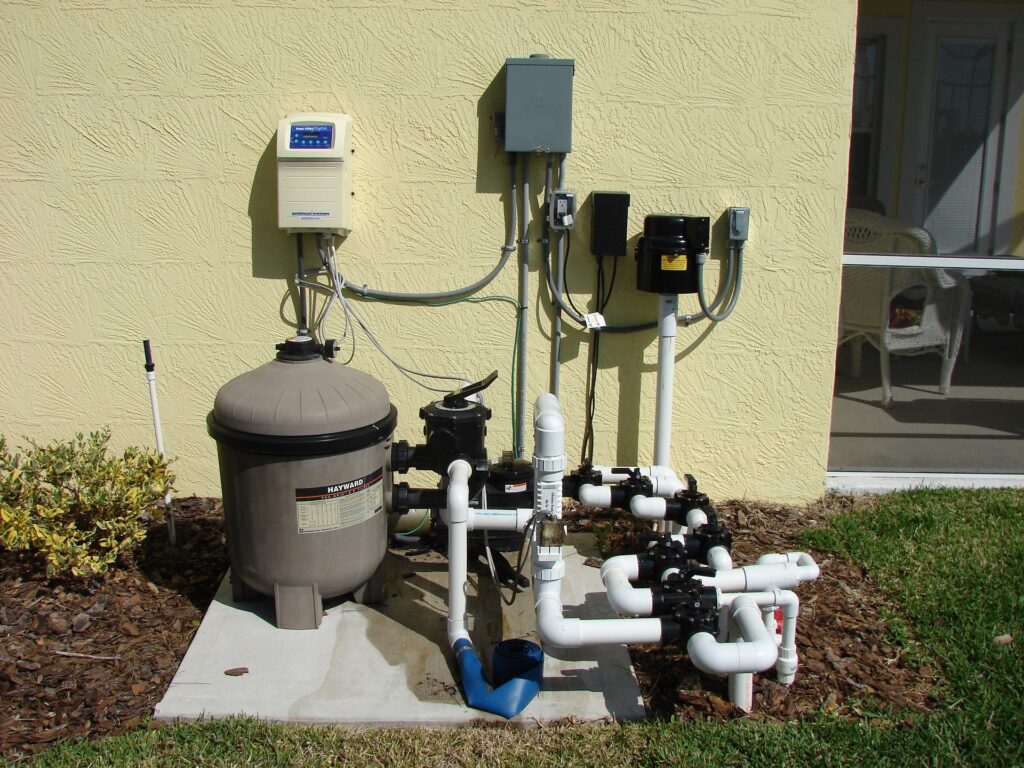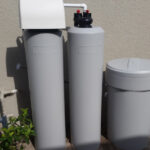Discovering the distinction between salt-based and salt-free water softeners is important for homeowners who want to improve water quality. These two alternatives offer unique approaches to combatting the same issues, each with advantages and limitations. Let’s get into the intricacies of both systems so we can shed light on their workings.
Understanding hard water
Understanding hard water is the first step to maintaining a healthy home environment. Hard water contains high levels of minerals, primarily calcium, and magnesium, which can lead to various issues. These minerals can accumulate in pipes and appliances, causing reduced water flow and efficiency. To check if you have this problem, you can test your water quality in FL or any other region using a testing kit or by contacting a local testing service. Note that this issue can also affect the lathering of soaps and detergents, making it harder to clean. Finally, over time, it may also result in mineral deposits on faucets and showerheads, diminishing their appearance.
Salt-based water softeners
How salt-based softeners work
Salt-based softeners are popular in Florida water treatment solutions for tackling hard water issues. These systems operate through a process called ion exchange. They contain resin beads that get charged with sodium ions. As hard water flows through the resin tank, the calcium and magnesium ions are attracted to the resin beads. Thus, this displaces the sodium ions. This exchange effectively removes the hardness minerals.
Periodically, the softener initiates a regeneration cycle, flushing the accumulated minerals and replenishing the resin beads. It does this with sodium ions from a brine tank filled with salt. This maintenance process ensures the continuous efficiency of the system.
Benefits of using salt-based softeners
Using salt-based softeners offers numerous advantages for homeowners. Firstly, these systems effectively remove the minerals responsible for the problems, like calcium and magnesium. That enhances the performance of household appliances, extends their lifespan, and improves the efficiency of soaps and detergents.
In addition, these softeners are known for their reliability. They require minimal maintenance, primarily involving replenishing the salt supply periodically. Also, softened water can save costs by reducing energy consumption in heaters and preventing scale buildup in pipes. Overall, the benefits of using salt-based softeners make them a valuable investment for homeowners seeking.
Drawbacks of salt-based softeners
While salt-based softeners offer several benefits, it’s essential to be aware of their drawbacks. One significant drawback is the cost of their maintenance requirements. These systems need regular salt refills and occasional resin bed cleaning, which can be a hassle for some homeowners. Also, the salt in the regeneration process can increase sodium levels. That may not be suitable for those on sodium-restricted diets. Environmental concerns also come into play, as the discharge of brine into sewage systems can affect local ecosystems. Finally, these softeners’ initial purchase and installation costs can be relatively high, making them less accessible.
Salt-free water softeners
How salt-free softeners work
Salt-free softeners, known as descalers or conditioners, operate on a different principle than their counterparts. These systems use template-assisted crystallization (TAC) or nucleation-assisted crystallization (NAC). Some specialized beads or media act as nucleation sites inside the softener tank. When hard water flows through the tank, the minerals in it are attracted to these sites. Instead of being removed, the minerals are converted into tiny, suspended crystals.
These crystals are harmless and do not adhere to pipes, appliances, or fixtures. While these softeners don’t remove the minerals like the alternative systems, they effectively prevent scale buildup and other negative effects. They’re low-maintenance, eco-friendly, and suitable for those looking to avoid salt in their treatment process.
Benefits of using salt-free softeners
Opting for salt-free softeners comes with several compelling advantages for homeowners. Firstly, these systems offer an eco-friendly solution to combat hard water issues. After all, they don’t rely on salt or chemicals. That means no brine discharge could harm the environment. Secondly, they require even less maintenance than the alternative. They are also compatible with various plumbing systems and can be easily retrofitted. Overall, these softeners offer a convenient, sustainable, and cost-effective solution.
Limitations of salt-free softeners
Naturally, salt-free softeners also have their limitations. These systems may not be as effective as salt-based softeners in extremely hard water conditions. In cases of severe hardness, some minerals may still pass through, albeit in reduced amounts. At the same time, the initial cost of salt-free softeners can be higher than traditional alternatives, which may deter budget-conscious homeowners.
While they require minimal maintenance, these systems’ efficacy may also decrease over time, necessitating periodic media replacement. It’s also crucial to note that salt-free softeners do not remove all minerals. So, this may not meet the needs of those seeking a complete removal of hardness. Despite these limitations, they remain viable for many households, especially those looking for eco-friendly and low-maintenance treatment solutions.
Installation and maintenance
Installing and maintaining salt-based and salt-free water softeners requires extra care. During installation, it’s essential to follow the manufacturer’s guidelines and, if needed, seek professional help to ensure the correct setup. Proper installation ensures that the system operates optimally, delivering the expected results. Still, even optimal installation can get messy. Therefore, you might want to hire a reputable moving company like Pro Movers Miami to take your items into storage and out of the way until you can get them back into your home. They are dedicated to moving excellence and keeping their client’s belongings secure, so you can rest assured that your things will be safe and unharmed until you will retrieve them.
After all that is done, regular maintenance is equally important, as it helps prevent issues and extends the lifespan of the equipment. Maintenance tasks may include cleaning, filter replacement, and periodic inspections to identify potential problems.
Cost considerations
When evaluating the purchase and installation of salt-based and salt-free water softeners, it’s essential to factor in upfront and ongoing expenses. The initial cost involves purchasing the equipment, which can vary significantly based on the system’s type and brand. Plus, installation expenses, such as labor and materials, are also something you should account for.
Beyond that, homeowners should consider the long-term operating costs, including maintenance, replacement parts, and utilities. While budget-friendly options are available, balancing cost savings with the system’s effectiveness and durability is important. Striking the right balance ensures that you invest wisely in your water treatment solution and enjoy its benefits long-term.
Environmental impact
Addressing the environmental impact is critical to choosing between salt-based and salt-free water softeners. A system effectively deals with common water contaminants and should also do so without causing harm to the environment. Environmentally conscious consumers are increasingly turning to sustainable treatment solutions.
These systems prioritize eco-friendliness by minimizing chemicals and reducing waste generation. For instance, many advanced filtration systems employ natural processes to remove contaminants, yielding results without chemicals. On top of that, some systems even incorporate recycling mechanisms to reduce wastage during the treatment process.
Choosing the right softener for your needs
Selecting the best water treatment solution is a key decision for any homeowner. Choosing the right softener depends on various factors tailored to your specific needs. Firstly, assessing the hardness of your water is crucial. Thus, you must do all the relevant tests, including a well water analysis in central FL. This step ensures that your selected system can effectively combat the minerals causing hardness issues. In addition, consider your household’s water usage and size when selecting a softener that can keep up with demand.
Keeping in mind what matters
Understanding the difference between salt-based and salt-free water softeners lets you decide the right solution for your home. By weighing the pros and cons of each system, you can make a solid choice that caters to your needs and environmental considerations. Whether you prioritize effectiveness, minimal maintenance, or eco-friendliness, both options offer distinct advantages, ensuring a healthier home environment!








